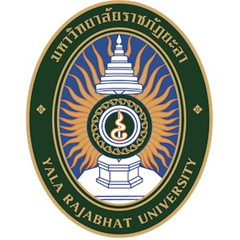Google Docs For Collaborative Essay Writing Practices During Covid-19 University Restrictions: EFL Students’ Perceptions
DOI:
https://doi.org/10.30983/mj.v1i1.4504Abstract
References
Aboagye, E., Yawson, J. A., & Appiah, K. N. (2020). COVID-19 and E-Learning: the Challenges of Students in Tertiary Institutions. Social Education Research, 2(1), 1–8. https://doi.org/10.37256/ser.212021422
Abrams, Z. I. (2019). Collaborative writing and text quality in Google Docs. Language Learning and Technology, 23(2), 22–42.
Adnan, M., & Anwar, K. (2020). Online learning amid the COVID-19 pandemic: Students’ perspectives. Online Submission, 2(1), 45–51. https://doi.org/10.46627/silet.v1i3.46
Afrin, M. (2020). Virtual EFL Classes during COVID-19 in Bangladesh: Pros and Cons with Possible Solutions at Tertiary Level. International Journal of English Language & Translation Studies, 8(2), 77–86. www.study.com
Akhter, T. (2021). Problems and challenges faced by EFL students of saudi arabia during COVID-19 pandemic. Rupkatha Journal on Interdisciplinary Studies in Humanities, 12(5). https://doi.org/10.21659/RUPKATHA.V12N5.RIOC1S23N5
Ambrose, R. M., & Palpanathan, S. (2017). Investigating the Effectiveness of Computer-Assisted Language Learning (CALL) Using Google Documents in Enhancing Writing – A study on Senior 1 Students in a Chinese Independent High School. IAFOR Journal of Language Learning, 3(2), 85–112.
Brodahl, C., Hadjerrouit, S., & Kristian Hansen, N. (2011). Collaborative Writing with Web 2.0 Technologies: Education Students’ Perceptions. Journal of Information Technology Education: Innovations in Practice, 10, 073–103. https://doi.org/10.28945/1384
Deepika, N. (2020). The impact of online learning during COVID-19: students’ and teachers’ perspective. The International Journal of Indian Psychology, 8(2), 783–793. https://doi.org/10.25215/0802.094
Giatman, M., Siswati, S., & Basri, I. Y. (2020). Online Learning Quality Control in the Pandemic Covid-19 Era in Indonesia. Journal of Nonformal Education, 6(2), 168–175. https://journal.unnes.ac.id/nju/index.php/jne
Hamid, R., Sentryo, I., & Hasan, S. (2020). Online learning and its problems in the Covid-19 emergency period. Jurnal Prima Edukasia, 8(1), 86–95. https://doi.org/10.21831/jpe.v8i1.32165
Jeong, K. O. (2016). A study on the integration of google docs as a web-based collaborative learning platform in EFL writing instruction. Indian Journal of Science and Technology, 9(39). https://doi.org/10.17485/ijst/2016/v9i39/103239
Khalil, Z. M. (2018). EFL Students’ Perceptions towards Using Google Docs and Google Classroom as Online Collaborative Tools in Learning Grammar. Applied Linguistics Research Journal, 2(2), 33–48. https://doi.org/10.14744/alrj.2018.47955
Lawrence, D. (2016). Collaborative writing among second language learners using Google docs in a secondary school context. International Journal on E-Learning Practices, 3.
Lin, S. S. J., Liu, E. Z. F., & Yuan, S. M. (2001). Web-based peer assessment: Feedback for students with various thinking-styles. Journal of Computer Assisted Learning, 17(4), 420–432. https://doi.org/10.1046/j.0266-4909.2001.00198.x
Maarof, N., Yamat, H., & Li, K. L. (2011). Role of Teacher, Peer and Teacher-Peer Feedback in Enhancing ESL Students’ Writing. World Applied Sciences Journal, 15, 29–35.
Pete, J., & Soko, J. J. (2020). Preparedness for online learning in the context of Covid-19 in selected Sub-Saharan African countries. Asian Journal of Distance Education, 15(2), 37–47. http://www.asianjde.org
Rasmitadila, Aliyyah, R. R., Rachmadtullah, R., Samsudin, A., Syaodih, E., Nurtanto, M., & Tambunan, A. R. S. (2020). The perceptions of primary school teachers of online learning during the covid-19 pandemic period: A case study in Indonesia. Journal of Ethnic and Cultural Studies, 7(2), 90–109. https://doi.org/10.29333/ejecs/388
Simamora, R. M., De Fretes, D., Purba, E. D., & Pasaribu, D. (2020). Practices, Challenges, and Prospects of Online Learning during Covid-19 Pandemic in Higher Education: Lecturer Perspectives. Studies in Learning and Teaching, 1(3), 185–208. https://doi.org/10.46627/silet.v1i3.45
Susilowati, R. (2020). The challenge of online learning in listening class during covid-19 pandemic. Edukasi Lingua Sastra, 18(2), 56–72.
Suwantarathip, O., & Wichadee, S. (2014). The effects of collaborative writing activity using Google docs on students’ writing abilities. Turkish Online Journal of Educational Technology, 13(2), 148–156.
Wakabayashi, R. (2013). The effects of the peer feedback process on reviewers’ own writing. English Language Teaching, 6(9), 177–192. https://doi.org/10.5539/elt.v6n9p177
Yim, S., Wang, D., Olson, J., Vu, V., & Warschauer, M. (2017). Synchronous writing in the classroom: Undergraduates’ collaborative practices and their impact on text quality, quantity, and style. Proceedings of the ACM Conference on Computer Supported Cooperative Work, CSCW, 468–479. https://doi.org/10.1145/2998181.2998356
Zhou, W., Simpson, E., & Domizi, D. P. (2012). Google Docs in an Out-of-Class Collaborative Writing Activity. International Journal of Teaching and Learning in Higher Education, 24(3), 359–375. http://www.isetl.org/ijtlhe/
Downloads
Published
How to Cite
Issue
Section
Citation Check
License
Authors who publish with this journal agree to the following terms:
- Authors retain copyright and grant the journal right of first publication with the work simultaneously licensed under a Creative Commons Attribution License that allows others to share the work with an acknowledgment of the work's authorship and initial publication in this journal.
- Authors are able to enter into separate, additional contractual arrangements for the non-exclusive distribution of the journal's published version of the work (e.g., post it to an institutional repository or publish it in a book), with an acknowledgment of its initial publication in this journal.
- Authors are permitted and encouraged to post their work online (e.g., in institutional repositories or on their website) prior to and during the submission process, as it can lead to productive exchanges, as well as earlier and greater citation of published work (See The Effect of Open Access).




